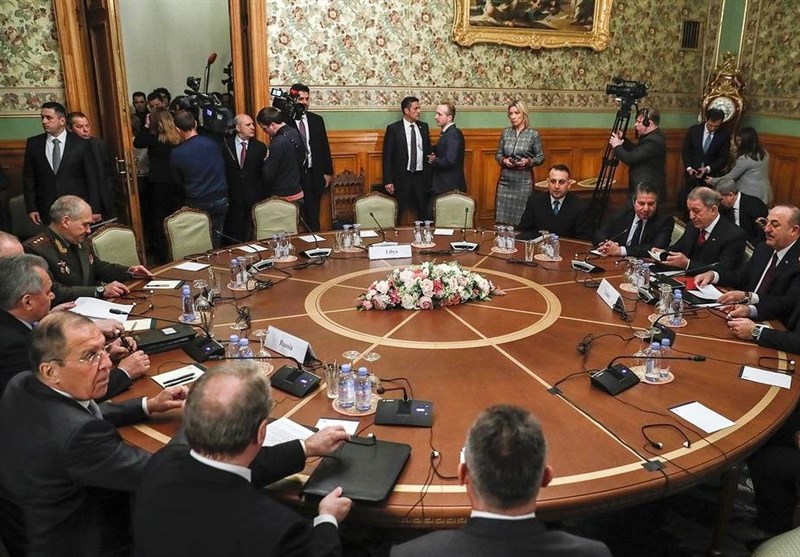Following a quadripartite conference held in Moscow attended by Head of the Libyan National Unity Government Faiz Seraj and General Khalifa Haftar, commander of the East Libyan Army, as well as representatives from Russia and Turkey and after it failed to reach agreement on a ceasefire, the German government held (Jan. 19) another international meeting on Libya and how to end the civil strife in the country. The conference was held on Sunday, January 19, with leaders and officials from 12 countries and representatives of four major international organizations in Berlin. The event displayed a new perspective on the composition of governments interested in influencing the process of domestic events in the oil-rich country in North Africa.
The Berlin summit did not go beyond preliminary talks despite the German government’s hope on a possible success on a ceasefire and the emphasis of some other participating countries on the possibility of signing a document on the Libyan developments. Instead, the Berlin conference sufficed to a verbal agreement on the need to implement the UN Security Council resolution on imposing arms embargo on Libyan groups.
The efforts at the Berlin summit aimed at reaching a ceasefire in Libya and then bringing peace to the country were diverse and very different in scope, not only in terms of peace but also with many difficulties and obstacles. It also raises some doubts about the achievement of minor successes in this area, particularly in practical terms.
A look at the main actors in this scene illustrates the existence of two groups of countries that have had the most interventions and activities in Libya over the past two years, while others are actors recently joined by players in the field.
Countries such as Egypt, Saudi Arabia, the United Arab Emirates, as well as France and Italy have long been involved in Libya on a variety of topics, especially through military action, and countries such as Turkey, Russia and Germany have been in the spotlight for months or weeks. They are trying to play roles in this scene as a ceasefire attempt.
The emergence of such a combination of states for a ceasefire and then for peace in Libya indicates that the warlords in this country, in particular, General Haftar and his sympathetic countries, have faced an impasse in advancing their objectives, especially the control of Tripoli, the capital, and thus the conditions for continued military action has become a very difficult and breathtaking situation.
It is, in fact, a reflection of the fact that the above-mentioned countries have sought to gain a share in the future of this vast country with rich oil reserves through a ceasefire, that is to say, in the context of ongoing efforts to establish a ceasefire. There are ongoing efforts to gain more from Libya’s oil wealth and get wider concessions from its highly strategic and lucrative position on the southern shores of the Mediterranean.
So it is clear that potential meetings for peace with the presence of foreign powers, before aiming at convergence and agreement on the fate of the Libyan people, will be a meeting of rivalry and profit-seeking. The meetings will also become a battleground for the future of Libya. According to available evidence, countries that have been active in Libya for the past several years will not allow new actors to pursue similar interests in these countries. For this reason, the prospect of any negotiations does not seem promising at all.
Regarding the field situation, the forces commanded by General Haftar after nine months of gruesome fighting, are unable to continue the current war and see the ceasefire as a gateway to their liberation from the current quagmire. The people of Tripoli, who currently support the National Unity Government led by Faiz Seraj, are also openly demanding a ceasefire. As the first news of the ceasefire was announced, they celebrated. Despite the Libyan people’s wishes, major oil companies, as well as large arms companies, are launching other plans for Libya, demanding that the civil war in Libya, as the five-year war in Yemen, be a source of income for oil dealers and weapons dealers. So the Berlin summit not only has not succeeded but has also become a venue for further conflict over Libya and its oil reserves.
A meeting in which countries such as Russia and Turkey have emerged as newcomers against some of their European and Middle Eastern rivals would inevitably confront those seeking to take advantage of Libya in terms of oil and arms sales. This is the issue that explains the complexity of the ceasefire and peace in this country.










0 Comments